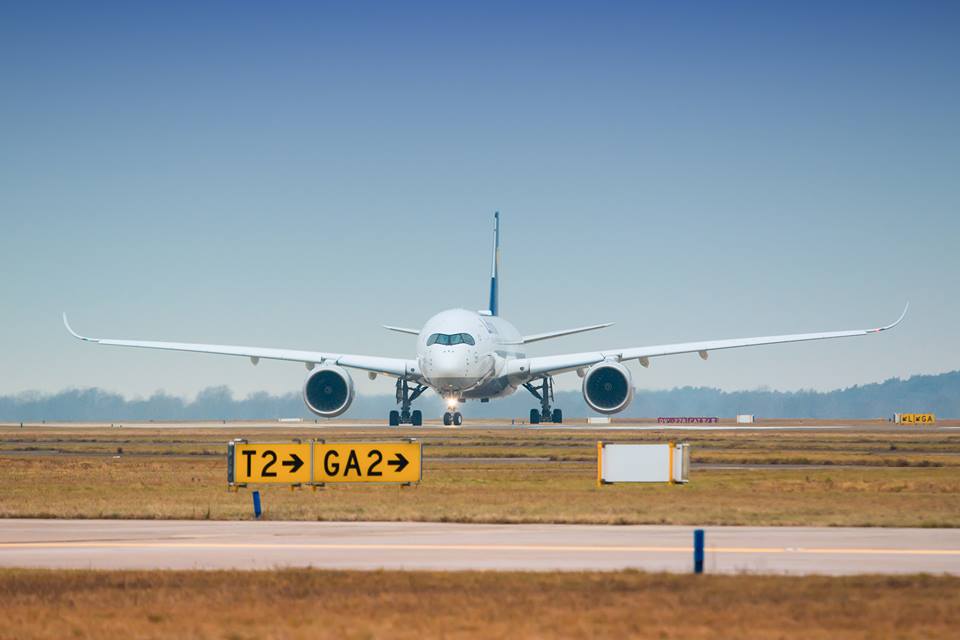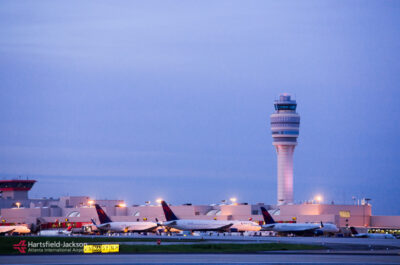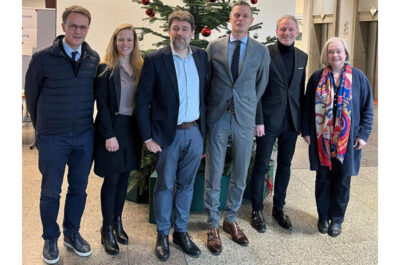A major contributing factor behind improved punctuality is the European-wide capacity measures put in place under a joint initiative led by FABEC ANSPs and the EUROCONTROL Network Manager which have led to more predictable traffic flows.
On-time performance improved substantially in the first eight months of 2019 throughout the FABEC area. Airlines reported that 77.1 percent of aircraft arrived at their destination on time, with less than 15 minutes or in some case ahead of schedule, 2.8 percent more than 2018.
A major contributing factor behind improved punctuality is the European-wide capacity measures put in place under a joint initiative led by FABEC ANSPs and the EUROCONTROL Network Manager which have led to more predictable traffic flows. A strong indicator of increased stability across the network is the so-called reactionary delay, which dropped by 2.1 percent as a result of more flights departing as planned. In addition, delays arising from airline causes and those due to air traffic management both recorded substantial reductions.
EUROCONTROL, Chairman FABEC Standing Committee Operations says: “In day-to-day business I noted an unprecedented spirit of cooperation, adamant among the FABEC ANSPs and the EUROCONTROL Network Manager, but also with other ANSPs all over Europe. This spirit is key for this collective success.”
Razvan Bucuroiu from the EUROCONTROL Network Manager said “The initial positive results are the outcome of the good cooperation established between FABEC and the EUROCONTROL Network Manager.”
Following the success of the 4ACC initiative launched in 2018, which saw FABEC centres work together with the EUROCONTROL Network Manager to mitigate bottleneck areas, the concept has been expanded to include more centres and other busy traffic flows within Europe. Capacity enhancement measures have been developed and executed both at a strategic level, by implementing re-routings or level caps to mitigate constrained area control centres, and at a tactical level for example through measures to reduce the impact of unexpected bad weather conditions. This lead to a decrease in en-route delay of approximately 12% between 2018 and October 2019 at European network level and by 30% at FABEC level.
As a result of the measures, predictability and punctuality have improved, flight efficiency was kept under control; the eNM measures resulted in 16,000 tonnes of additional CO2, but contributed to avoiding a much more significant environmental impact that would have resulted from an increase in delays. Emissions estimated at approximately 5-6 million tonnes of CO2 have been avoided as a result of the EUROCONTROL Network Manager action plan and the actions taken by the operational stakeholders.
The airspace of the six FABEC States of Belgium, France, Germany, Luxembourg, the Netherlands and Switzerland is one of the busiest and most complex in the world. The majority of major European airports, major civil airways and military training areas are located in this area. FABEC airspace covers 1.7 million km² and handles about 5.8 million flights per year – 55% of European air traffic.
Tatiana is the news coordinator for TravelDailyNews Media Network (traveldailynews.gr, traveldailynews.com and traveldailynews.asia). Her role includes monitoring the hundreds of news sources of TravelDailyNews Media Network and skimming the most important according to our strategy.
She holds a Bachelor's degree in Communication & Mass Media from Panteion University of Political & Social Studies of Athens and she has been editor and editor-in-chief in various economic magazines and newspapers.






































































































































































































